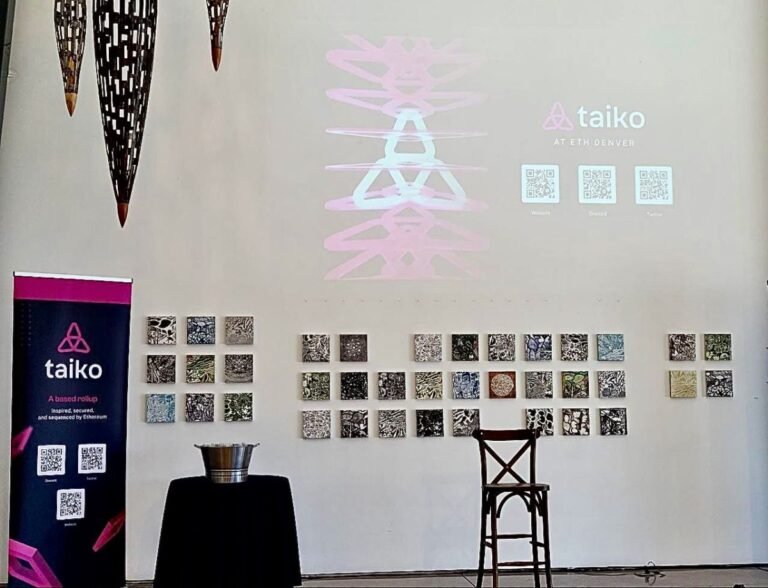
Google’s newest startup program, announced on Wednesday, aims to bring AI technology to the public sector.
The newly launched “Google for Startups AI Academy: American Infrastructure” will offer participants hands-on training from AI experts and other support for companies solving problems in areas like agriculture, energy, education, public safety, healthcare, telecommunications, transportation, urban development, and more.
Over the course of twelve weeks, startups participating in the equity-free program will be guided by an AI curriculum developed by Google’s People + AI Research (PAIR) team and will participate in advanced sales and go-to-market workshops.
They’ll also be able to access industry connections and, of course, tap into Google’s AI tools as they build.
While much focus is on the AI companies building the models, tools, and interfaces for working with AI, a focus on real-world applications of the technology could impact communities at the local, state, and national levels, Google believes.

Powerhouse venture capital firm Andreessen Horowitz is promoting Jennifer Li to general partner after six years at the firm.
She’s being tapped to help invest the new $1.25 billion Infrastructure fund managed by longtime a16z general partner Martin Casado.
The Infrastructure fund is part of the fresh $7.2 billion that the Silicon Valley VC giant just raised.
Li has been an investing partner on the Infrastructure team for a while, which means she was already writing checks and taking board seats.
Plus she’s one of only four GPs on the Infrastructure team.

Combined with around $24 million of its own money, Tesla wanted to build nine electric semi-truck charging stations between Laredo, Texas and Fremont, California.
“The project will help create a hydrogen corridor from southern California to Texas,” the Department of Transportation wrote in a statement in January.
“Funding hydrogen stations will go down as purely wasted money,” Patel told TechCrunch this week.
While he no longer speaks on behalf of Tesla, he also criticized funding hydrogen infrastructure when he was still with the company.
Despite all this, the Tesla Semi program is still slowly attracting customers.

The lack of charging infrastructure is a major barrier to entry for those looking to convert gas-powered vehicles to electric.
Founded by Louis Tremblay, FLO is looking to build robust EV charging infrastructure that will create a reliable web for drivers to get to where they need to go.
Since then, however, the company has raised more than $334.4 million and become Canada’s largest EV charging provider.
“Hardware is important because it’s the infrastructure that lasts [and] software is to make a great experience,” said Tremblay.
It seeks to keep chargers up-to-date and has a suite of charging software that provides valuable data to — and about — drivers.

In the summer after his freshman year at Worcester Polytechnic Institute, an engineering school in Worcester, Massachusetts, Cyvl.ai co-founder and CEO Daniel Pelaez needed a job.
And during my time there, I quickly saw firsthand they had no data on anything,” Pelaez told TechCrunch.
He saw an opportunity that would eventually become Cyvl.ai, a firm that helps municipalities and civil engineering firms bring a digital layer to tracking the conditions of transportation infrastructure.
“Our core vision and why we started the company in the first place is to help the entire world build and maintain better transportation infrastructure,” he said.
The $6 million investment was led by Companyon Ventures with participation from Argon Ventures, AeroX Ventures and Alumni Ventures.

A new report highlights the demand for startups building open source tools and technologies for the snowballing AI revolution, with the adjacent data infrastructure vertical also heating up.
A broader look at the “top 50 trending” open source startups last year reveals that more than half (26) are related to AI and data infrastructure.
This ethos often translates into commercial open source startups which might not have a traditional center of gravity anchored by a brick-and-mortar HQ.
For comparative purposes, there are other indexes and lists out there that give a steer on the “whats hot” in the open source landscape.
So the ROSS Index has emerged as a useful complementary tool for figuring out which open source “startups” specifically are worth keeping tabs on.

Appzone is one of the standout local fintech software providers for banks and fintechs, providing better pricing and flexibility.
As such, it rebranded to Zone, a licensed blockchain-enabled payment infrastructure company–and carved out its original banking-as-a-service business into a separate standalone company, Qore.
Today, Zone, its blockchain network that enables payments and acceptance of digital currencies, is announcing that it has raised $8.5 million in a seed round.
Therefore, the fintech is developing an interoperable payment infrastructure using blockchain technology — known for its ability to scale infinitely — to connect banks and fintech companies, facilitating transaction flow without intermediaries.
“We are excited by the potential for Zone’s technology to be replicated across borders to advance payment innovation globally.

AI startup Advocate thinks that the tech could help people apply for federal government benefits more easily.
The New York-based startup was founded by Emilie Poteat, who got the idea after watching her stepfather try to get social security benefits.
Years later, Poteat realized that AI may be able to improve that process.
Poteat came on TechCrunch’s Found podcast this week to discuss why automating the application process using AI could help numerous people access government benefits easier.
This episode also dives into the company building process for Poteat and Advocate as the startup hasn’t fully launched yet.

Convinced that the infrastructure layer for truly decentralized social apps was lacking, he decided to fill the void, leading to Taiko’s inception in March 2022.
A truly decentralized social networkFor Wang, Taiko provides a critical building block for a social network that is truly owned by users.
The ideal decentralized social app, despite its greater technical challenges, could allow: “1.
Censorship resistance… and thus, freedom of speech.”One of the greatest challenges facing decentralized social apps is content quality and safety.
Each relayer can then filter content that reflects the “unique perspectives” of the underlying decentralized social network, thereby attracting diverse user bases.

Silence Laboratories, a startup that builds infrastructure using multiparty computation (MPC) to help enterprises keep data private and safe, said it has raised a $4.1 million funding round.
Pi Ventures and Kira Studio co-led the recent funding, which brings its total raised to $6 million, along with angel investors.
The startup will use the funding to scale its teams and beef up its R&D pipeline.
The outfit started as a multifactor authentication (MFA) company and pivoted its business to building a cryptographic security firm.
It also recently launched Silent Compute, which lets corporations collaborate on processing information without revealing their own private data to third parties and enrich insights while maintaining compliance and trust.













